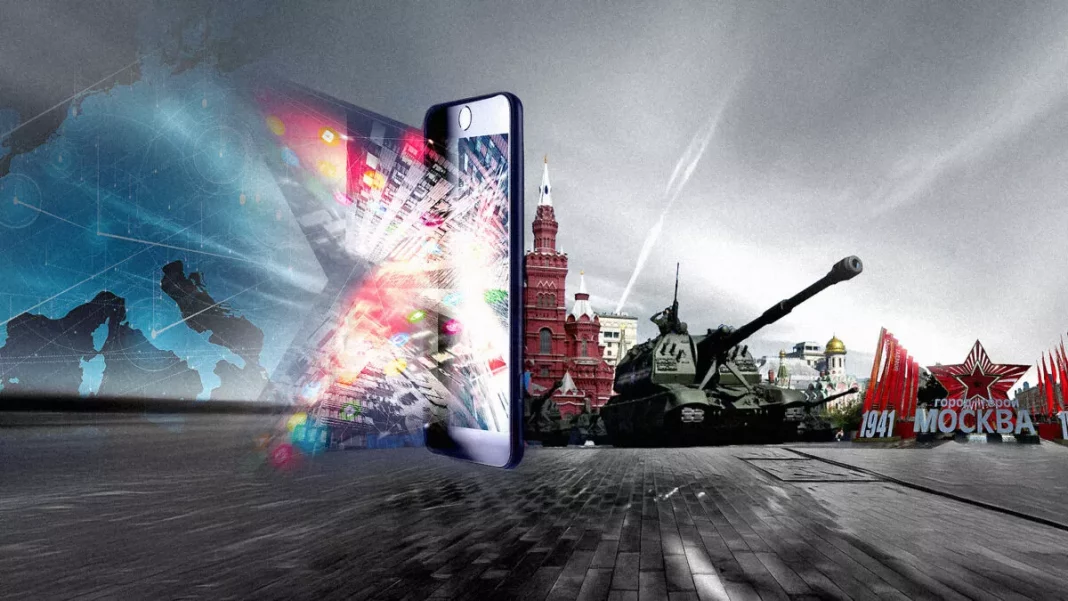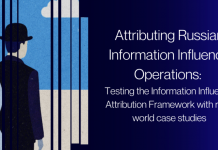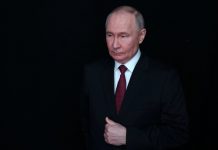By EUvsDisinfo
As Russia gears up for its annual Victory Day spectacle on 9 May, the Kremlin’s disinformation machine is running at full tilt – at home, abroad, and across social media. Within the same seven days, Romania’s 4 May presidential election became yet another battlefield in Moscow’s war on truth. The message is clear: distort history, divide societies, and weaken democracy.
Russia’s FIMI activities were on display in Romania this week – just as they were last November, when the authorities annulled the election over credible reports of Russian meddling. It is a pattern, not a coincidence.
Last time, during Romania’s November elections, a coordinated campaign used social media to spread fake news, smear candidates, and amplify extremist voices. A network of 25 linked pages pushed political ads worth over €260,000. No legal imprint. No transparency. Just Kremlin-style chaos.
The Kremlin playbook in action
Every election, the Kremlin deploys the same playbook: 1) Flood the information space: Confuse voters with a torrent of low-quality, high-emotion, and often contradictory content. It means fake news on TikTok, Telegram, and fringe sites – attacking the EU, praising extremists, and casting doubt on the vote itself.
2) Attack the centre, boost the fringe: Pro-European candidates are smeared as corrupt puppets of Brussels and Washington. Far-right candidates are painted as heroes of ‘sovereignty’ and ‘tradition.’
3) Fuel distrust: The goal is not just to swing votes, but to erode confidence in democracy. Voters are bombarded with lies about rigged elections, foreign control, and EU conspiracies – all engineered to make people lose faith in the system.
The Kremlin’s interference is not solely about winning. It is also about breaking. Breaking trust, breaking institutions, and breaking unity.
Victory Day: Distorting the past to justify the present
While Russian FIMI poisons elections abroad, at home the Kremlin is busy rewriting history. Russia’s ‘Victory Day’ is far from a solemn remembrance, it is a disinformation bonanza. While missiles rain down on Ukrainian cities, Moscow claims it is fighting ‘Nazism’. And while it occupies territory and flattens civilian homes, it wraps itself in the disinformation wrapped legacy of 1945.
Russian state outlets, officials, and online influencers all repeat the same lie: Ukraine is a Nazi state, and the EU supports ‘neo-Nazism’. Itis not mere propaganda – it’s gaslighting. Designed to justify war, discredit Europe, and sow chaos far beyond Russia’s borders.
This week, we have published a series of articles uncovering Russia’s ongoing efforts to distort historical facts – crafting a deceptive narrative that credits Russia alone with the defeat of Nazi Germany in World War II – and using that revisionism to justify its current war in Ukraine through deceptive historical analogies.
Two fronts, one strategy
Romania’s election and Victory Day may seem worlds apart, but they are two fronts in the same war. One uses history. The other uses lies. Both aim to destabilise, divide, and destroy democratic cohesion. This is not just about targeting states. It is about targeting minds, memories and the institutions that hold free societies together. For the Kremlin, elections and anniversaries are not civic events – they are weapons.

Also on EUvsDisinfo’s radar this week:
- Kremlin-linked outlets falsely claimed that several refineries exploded during the 28 April, 2025 blackout in Spain, fuelling speculation of a cyberattack. In reality, the flames and smoke seen in viral videos were part of standard safety procedures to burn off excess gas, no explosions occurred. Experts have found no evidence of a cyberattack, suggesting the claim was intended to sow confusion and destabilise public perception during the outage.
- The false allegation that Russia’s war on Ukraine is about Russia’s security and not territorial ambition continues to be peddled. In reality, Russian leaders have voiced imperialist aims and continue demanding recognition of occupied Ukrainian land. Ukraine had even agreed not to join NATO before the invasion, but Putin rejected the deal. Russia’s actions, like moving weapons away from NATO borders, show it does not fear NATO, exposing its security claims as a pretext for expansion.
- Pro-Kremlin sources also falsely claimed that French media had mocked President Zelenskyy for being ‘greedy’ at Pope Francis’ funeral, citing a fake Charlie Hebdo cover. No such satire exists, the referenced issue had in fact been fabricated, part of a known tactic using fake outlets to spread disinformation.
By EUvsDisinfo





